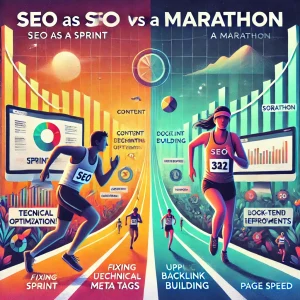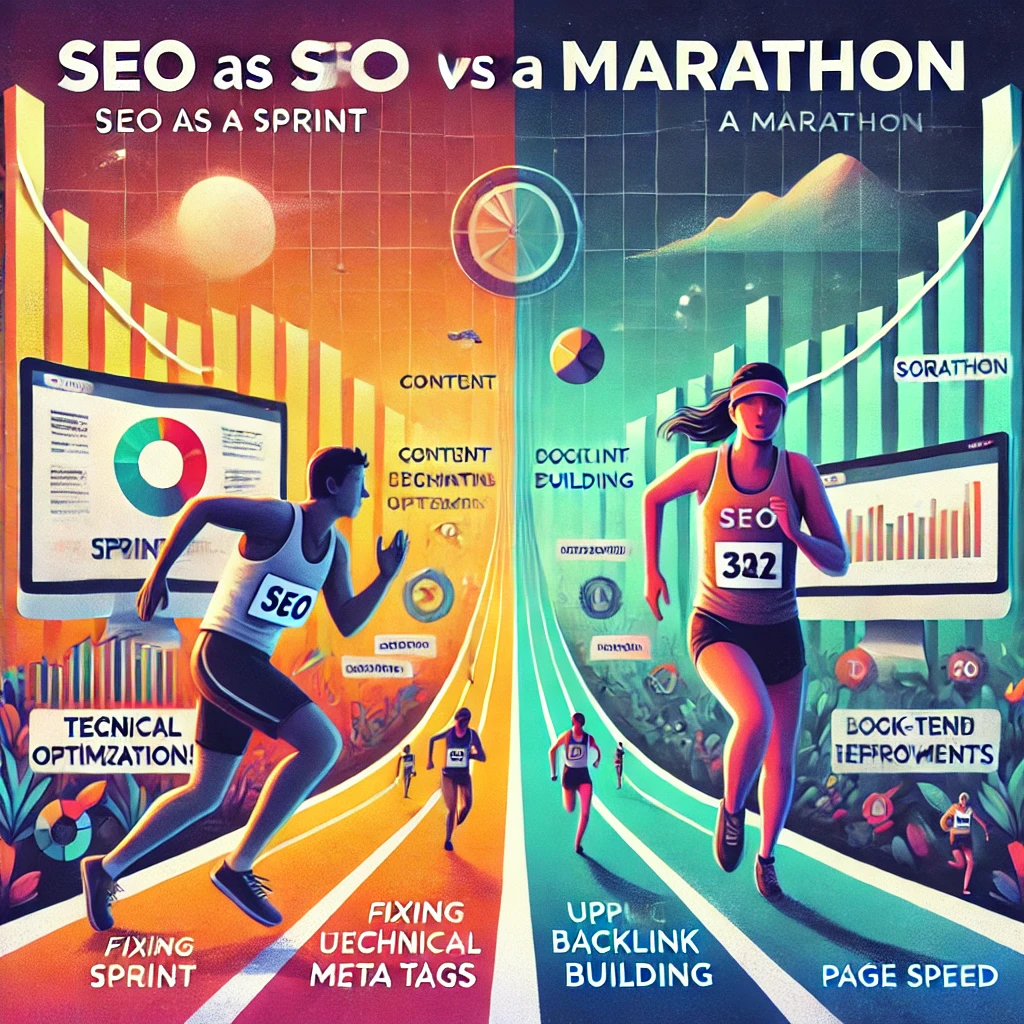Does SEO is a Sprint verses SEO is a Marathon.
Does SEO is a Sprint verses SEO is a Marathon. SEO is fundamentally a marathon with occasional sprints, requiring sustained effort for long-term success while allowing for short-term tactical adjustments. Here’s a detailed breakdown:

1. Why SEO is a Marathon
- Time-Consuming Fundamentals: Domain Authority: Building trust with search engines takes months or years through consistent content, backlinks, and technical optimization. Algorithm Updates: Search engines like Google frequently update their algorithms (e.g., Core Web Vitals, BERT). Staying compliant demands ongoing adaptation. Content Accumulation: Ranking for competitive keywords often requires a robust library of high-quality, evergreen content that grows organically over time.
- Compound Growth: SEO results (e.g., traffic, rankings) compound gradually. Early efforts (e.g., fixing technical issues, publishing content) lay the foundation for future gains. Backlinks and user engagement metrics (e.g., dwell time) take months to influence rankings meaningfully.
- Competitive Landscape: Competing with established players requires patience. For example, outranking a domain with 10+ years of authority is rarely a short-term endeavor.
2. When SEO Resembles a Sprint
- Quick Wins: Technical Fixes: Resolving crawl errors, optimizing meta tags, or improving site speed can yield rapid improvements. Low-Hanging Keywords: Targeting long-tail, low-competition keywords may drive traffic within weeks. Time-Sensitive Opportunities: Capitalizing on trending topics or events (e.g., holiday SEO) requires agile execution.
- Recovery Sprints: Addressing penalties (e.g., manual actions from Google) or algorithm hits (e.g., losing rankings post-update) demands urgent action.
- Launch Phases: New websites or pages may need intensive initial optimization (e.g., keyword research, on-page SEO) to establish visibility.
3. Balancing Sprints and Marathons
- Long-Term Strategy with Short-Term Goals: Marathon: Focus on evergreen content, backlink building, and technical health. Sprints: Allocate resources to tactical wins (e.g., optimizing for featured snippets, leveraging seasonal trends).
- Metrics to Track: Short-Term: Crawl errors, indexation rates, quick traffic spikes from low-competition keywords. Long-Term: Organic traffic growth, domain authority (DA), ranking stability for competitive terms.
- Risk of Over-Sprinting: Black-hat tactics (e.g., keyword stuffing, spammy backlinks) may offer short-term gains but risk penalties. Over-prioritizing quick wins can neglect foundational issues (e.g., poor site architecture).
4. Real-World Examples
- Marathon: A niche blog takes 6–12 months to rank for mid-competition keywords but eventually dominates its space through consistent content and backlinks.
- Sprint: An e-commerce site fixes product page load times during Black Friday prep, leading to a 20% traffic boost in 2 weeks.
Conclusion
SEO is primarily a marathon—success hinges on patience, persistence, and adapting to long-term trends. However, strategic sprints (e.g., technical fixes, trend-based content) can accelerate progress. Businesses should invest in sustainable practices while staying agile enough to seize immediate opportunities.




